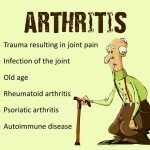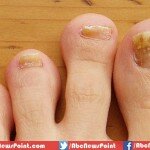Insomnia
What is Insomnia?

Insomnia is a situation or a problem in which a person is unable to sleep, or it can makes you to wake up too early and may not get back to sleep sometimes have difficulty to stay asleep as well. It is a common sleep disorder that affects millions of people all over the World. People at any stage of their live can be affected by Insomnia.
Insomnia is generally classified into three categories:
1.Transient insomnia: is a condition in which a person’s symptoms last up to days or few weeks.
2. Acute insomnia: Also known as short-term insomnia can be identified when someone is having the symptoms that last for numerous weeks.
3. Chronic insomnia: may continue for months and in some cases for years. National Institutes of Health refer this class of insomnia as a secondary which means a side effect or the symptoms occurs from some other primary problem
They are generally found more commonly in females of any age rather than males.
Causes of Insomnia:
Different Medical health problems or conditions (mild or serious) lead to insomnia because they are the major reason that can contribute in discomfort and pain which can lead a person to sleeplessness.
Some common medical conditions that cause insomnia are:
• Nasal allergies
• Problems like Gastrointestinal
• Problems such as hyperthyroidism
• Arthritis
• Asthma
• Neurological conditions
• Chronic pain
• Low back pain
• Depression
• Anxiety
Treatment or Prevention for Insomnia:
Once identified, it can be treated by both medical and non-pharmacological (behavioral) therapies.
Home remedies and Non-pharmacological for the prevention of Insomnia are:
1.Sleep hygiene: Avoid sleeping too much or little, having a proper sleeping schedule, avoid smoking and caffeine at night, avoid to go to bed hungry and manage to have a proper sleeping environment.
2.Relaxation techniques: Muscle relaxation by the core building light exercises like yoga stretches.
3.Cognitive therapy: Counseling with friends or family members in person or group discussions.
4.Before bed time: Only go to bed when feeling sleepy. Reading, eating, Watch TV, depression, anxiety is strictly not a healthy routine in bed.
5.Regular sleep schedule: Try to go to bed or get up on daily basis at the same time (Also Weekends)
6.Use the bathroom before going to bed: Try to limit the need to use bathroom during sleep. It can be done by avoiding drinks an hour prior to sleep.
Medical treatments:
General Practitioners or Doctors may refer different techniques or medication according to the symptoms or depending upon the situations which may be short term or long term.
1. Sleeping pills (often)
2. Antidepressants
3. GP Sessions
4. Psychological Consultation Therapies (Anxiety & Depression)

































